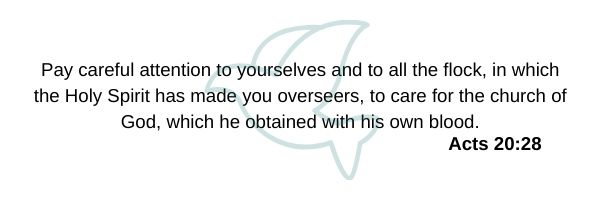Some assume that alcoholism doesn’t happen to Christians, but it does. Alcoholism presents many challenges, but there is christian alcohol rehab available, or faith-friendly evidence based programs that can help people overcome alcoholism.
Making alcoholism even more of a difficult problem to tackle, in most parts of the world, alcohol is legal for adults to purchase and consume. As a result, beverages that comprise alcohol are available almost everywhere; and noticeably, many adults partake but not all become addicted.
Drinking alcoholic beverages is not like heroin or cocaine, it is socially acceptable. Its wide acceptance can make it difficult to determine who is drinking alcohol in an appropriate manner and who is drinking in a manner that could lead to alcohol abuse or alcoholism.
For alcoholics, each day is a battle against emotional and physical exhaustion that continuously seeps into every angle of life. If you’re tired of the fight, it’s time to trust God with your burden.
Alcohol in America
Alcoholism is the most severe form of alcohol abuse and involves the inability to control drinking habits. It’s commonly referred to as alcohol use disorder.
According to the 2017 National Survey on Drug Use and Health (NSDUH), 51% of the population (age range 12 and older) reported binge drinking in the past month. Binge drinking is defined as four or more drinks for females and five or more drinks for males on the same occasion (at the same time or within a couple of hours).
Alcoholism is a chronic disease of the brain that results in physical, social, and psychological consequences. The inability to stop drinking alcohol, even when knowing there are a multitude of negative consequences, is a clear sign that one may have a problem and need treatment.
The disease doesn’t discriminate; it affects people of all walks of life. Regardless of what we know about the nature of addiction and how it affects all sectors of society, the image we often associate with alcoholics is, jobless, desperate, and isolated from society. Reality is, there are individuals excelling in their professional lives, attending church with their families, and serving in various ministries that are struggling with alcohol addiction.
Scripture warns us that alcohol abuse hurts our lives in multiple ways. It impedes our understanding and judgment and inhibits us from living out our purpose. Hosea 4:11 says, “Wine and new wine take away the understanding”. 1 Corinthians 6:11 tells us, “Nor thieves, nor covetous, nor drunkards, nor revilers, nor extortioners, shall inherit the kingdom of God.”
It’s imperative that churches have appropriate resources readily available if someone reaches out for help. Church leaders should find trustworthy folks in the church to talk with and seek wise counsel from.
Missing the Signs
Sometimes the warning signs of alcohol misuse are noticeable. Other times, they can take longer to surface. As an addiction tends to get worse over time, it’s important to look for warning signs when you suspect you or a loved one may have a problem.

The National Institute on Alcohol Abuse and Alcoholism (NIH) lists the following as some warning signs of alcohol abuse:
- Neglecting personal and/or family responsibilities
- Increased lethargy, depression, or other emotional issues
- A decline in academic or professional performance
- Continuous conflicts with loved ones
- Inability to control drinking
- Needing increasing amounts of alcohol to feel its effects
- Failing in attempts to stop drinking
- Getting drunk when it could be dangerous, such as before driving
According to American Addiction Centers, there are numerous short-term effects as well as long-term effects. Some of the most common short-term effects are:
- Loss of coordination and critical judgment
- Mood swings along with lowered inhibitions
- Trouble concentrating
- Raised blood pressure
- Pass out and loss of memory
- Vomiting
Even if a person is not abusing alcohol regularly, they can still experience short-term effects on the mind and body.
Long-term effects of heavy drinking include:
- Liver damage and cardiovascular disease
- High blood pressure and stroke
- Diminished gray matter and white matter in the brain
- Liver fibrosis and steatosis(fatty liver disease)
- Trouble learning and loss of attention span
God Can Heal
God’s people are called to be sober, not intoxicated. We are the sons of light and day (1 Thessalonians 5:5-8). If we are intoxicated with alcohol, then by association, we are sons of darkness and night. Sobriety is communicating to others that we are walking in the light and in the truth of God’s word. Being intoxicated allows us to be blind and deceived.
There are scriptures in God’s Word that assure us He wants to heal and restore what’s broken in us. The following verses reveal the truth of what God will do for you.
- Jeremiah 30:17– “But I will restore you to health and heal your wounds, declares the Lord because you are called an outcast, Zion for whom no one cares.”
- James 5:16– “Therefore confess your sins to each other and pray for each other so that you may be healed. The prayer of a righteous person is powerful and effective.”
- Jeremiah 33:6– “Nevertheless, I will bring health and healing to it; I will heal my people and will let them enjoy abundant peace and security.”
Doctors and medicine are a gift of God, and He certainly uses them to bring healing. The anointing, power, and gifts of the Holy Spirit are readily available to help us in difficult situations.
Helping Someone Who Has a Drinking Problem
According to the Gospel, we are to operate from the understanding that God loves the person you are ministering to and is already working in him or her. Ministry leaders need to be mindful that they are not doctors. They can suggest doctors, clinics, and programs, but they need to focus on building a relationship of trust with the person seeking guidance during his or her struggle.

ThinkTheology.org outlines simple ways to effectively minister to a person struggling with alcohol addiction.
- They need to be reminded of how God loves them even in the midst of their struggle (2 Corinthians 2:17).
- They need to remember that they can still respond to God’s love through worship and acts of service while coping with struggles (Romans 7:14-25).
- Make it very clear to the individual that you are ministering to that you have boundaries.
- Don’t operate solo. Get trustworthy and capable folks in the church to support you.
- As a leader in ministry, you are not convincing people to become more moral so that they might have a better “spiritual resume”. You are simply and uniquely a practitioner of soul care through the power of the Gospel. You are leading them to the great Physician Jesus Christ.
Hurting and struggling people need more than surface-level change, they need transformation. Read Ephesians 4:1-6 to remind yourself what you’re called to do.
Admitting to an addiction can be tough for anyone, but especially for a Christian. Christians have a spiritual and leadership role they are responsible to live up to in both their families and their community. Don’t give up; through God, all things are possible! Seek help today by reaching out to Chaplain Mike at (877)781-9685.
Contact Us
Fill out this contact form and someone from our team will be with you within the same day. Please do not include overtly personal or sensitive information. A general summary of the situation will be enough. God Bless!
